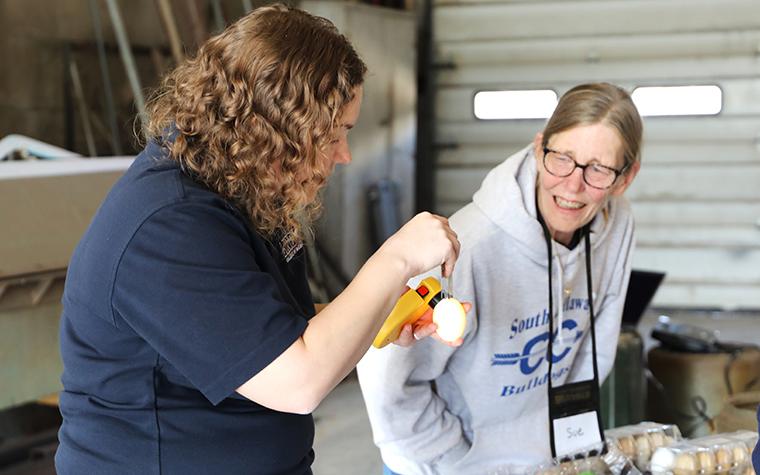
Pearls of Production returns Feb. 28 in Columbia
COLUMBIA, Mo. – The 2026 Pearls of Production Conference is set for Saturday, Feb. 28, at the University of Missouri Beef Research and Teaching Farm in Columbia. This in-person gathering promises a full day of hands-on learning, idea exchange and inspiration, says Heather Conrow, MU Extension livestock and poultry specialist.
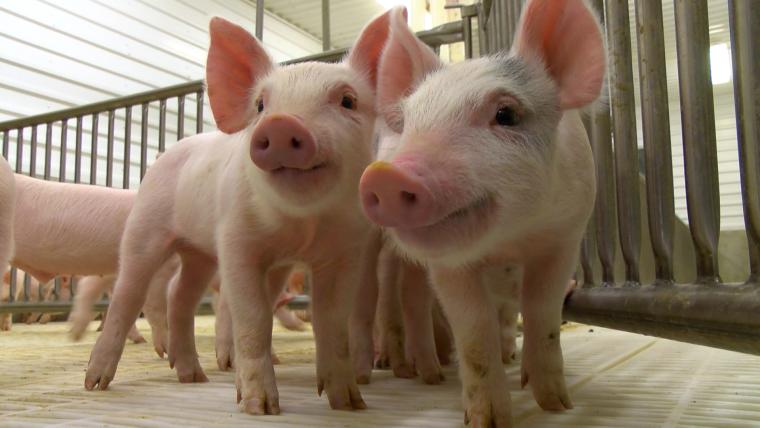
MU Extension works with swine industry, TN visa workers to address labor shortages
University of Missouri Extension specialists are working with the swine industry and temporary visa holders to help recruit, retain and develop agriculture professionals needed to address ongoing farm labor shortages.
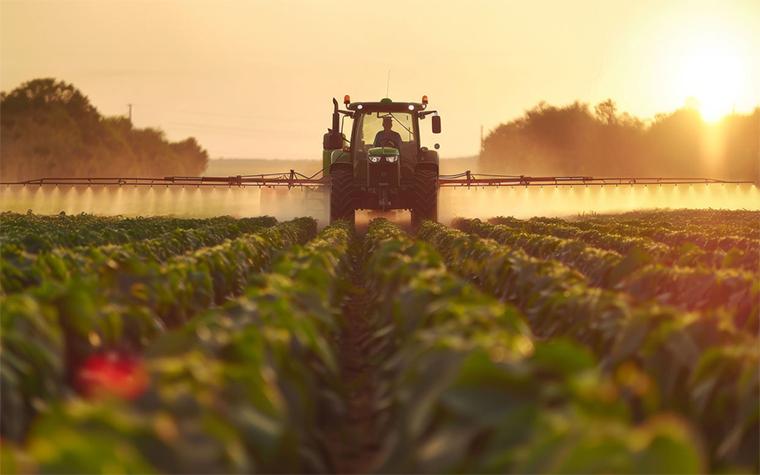
Register for the Missouri Crop Management Conference
Registration is open for the state’s premier agricultural conference for farmers and ag industry professionals, the Missouri Crop Management Conference, Dec. 9-10 in Columbia.
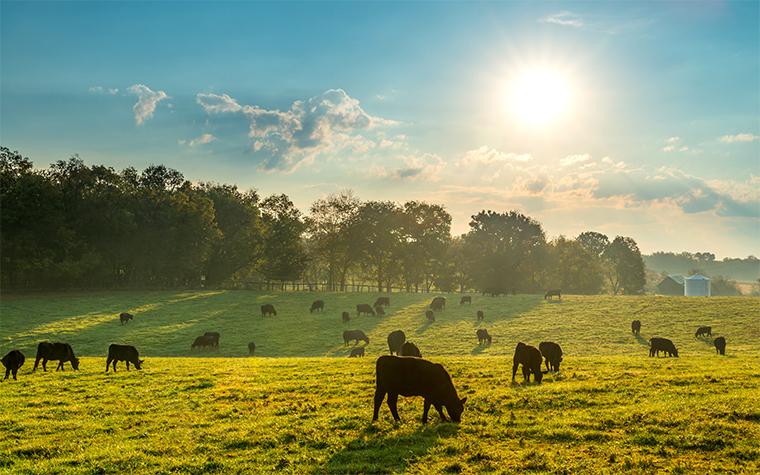
Updates to Livestock Risk Protection insurance give producers more flexibility
Livestock producers now have more flexibility under recent updates to USDA’s Livestock Risk Protection (LRP) program, which helps safeguard against unexpected price declines in feeder cattle, fed cattle and swine markets. MU Extension has updated its publication on LRP to reflect the most recent program changes.
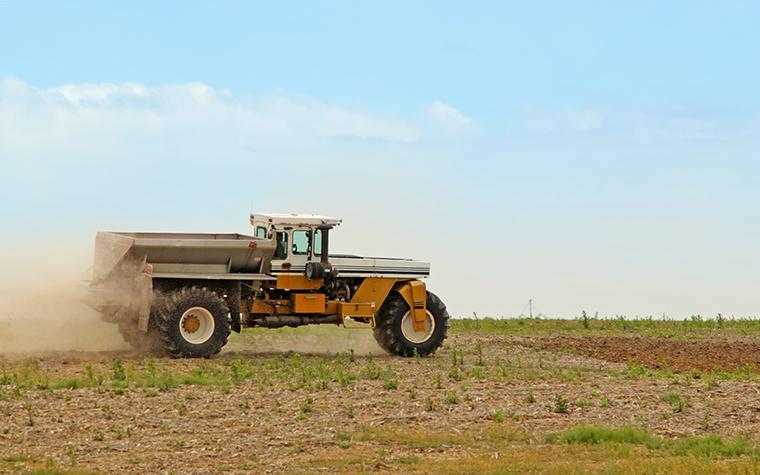
Is the 'going rate' going up?
Farmers and agricultural service providers across Missouri are invited to participate in University of Missouri Extension’s Custom Rates Survey. This triennial survey helps shed light on the costs associated with custom farming operations such as tillage, planting, spraying, harvesting, land management work and machinery rental.
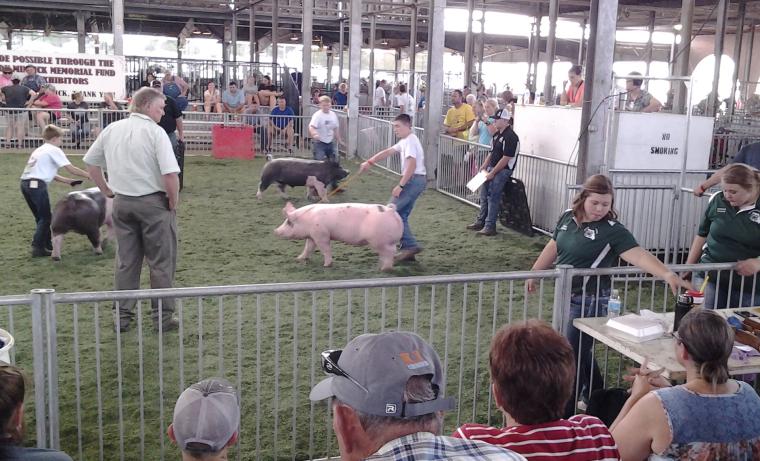
MU vet recommends CVI for safe showing of animals
Obtain a CVI to ensure animals are healthy and safe for shows, preventing disease and meeting veterinary requirements.
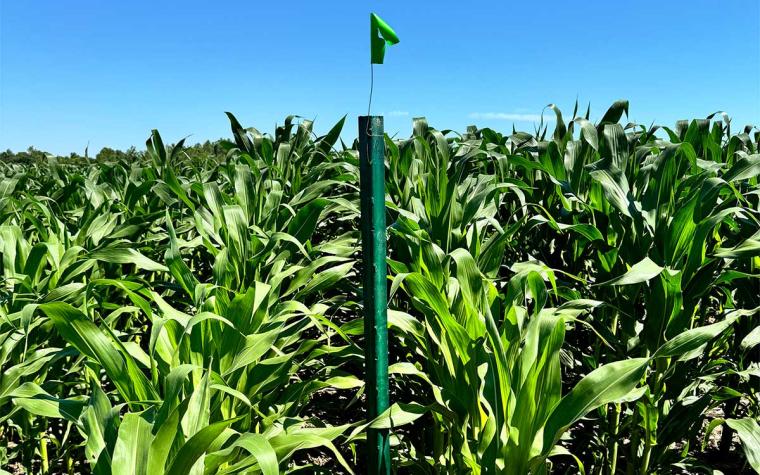
MU Extension joins multistate study of pig manure as corn fertilizer
Researchers study pig manure as a corn fertilizer to compare yields, soil nutrients, and environmental effects in a multistate project.
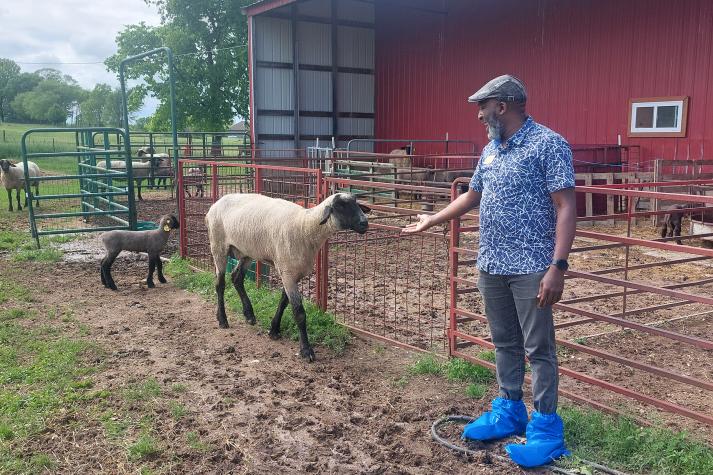
MU Extension has new guide on biosecurity for sheep producers
Learn key biosecurity steps to protect sheep, farmworkers, and flocks from disease with practical on-farm guidelines.

October Pork Month and biosecurity go hand in hand
COLUMBIA, Mo. – The safety of the U.S. pork supply is achieved through biosecurity protocols not only during National Pork Month in October but every day of the year to safeguard animal health, food safety, the environment and the economy. University of Missouri Extension’s Swine Team educates pork producers and workers on safety protocols throughout the year, working with industry partners, said Magdiel Lopez, MU Extension state swine…
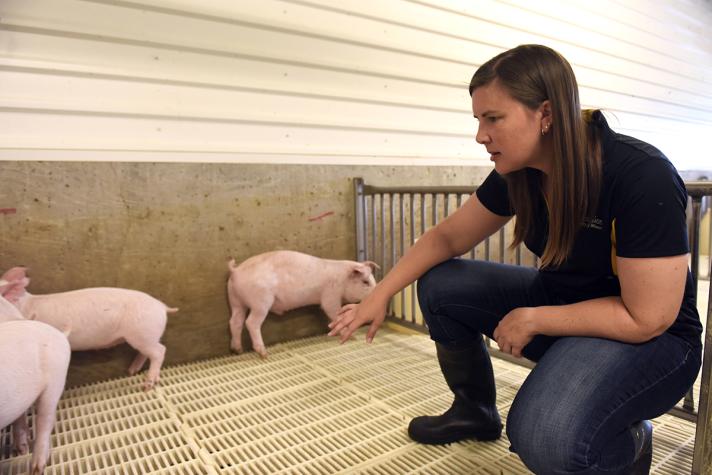
Swine specialist says biosecurity biggest protection from H5N1 in pigs
Protect pig herds from H5N1 by strengthening biosecurity, controlling exposure to waterfowl, and monitoring worker health and movement.

Grant aimed at employee satisfaction, retention for foreign labor in swine industry
A grant supports pork producers using TN-visa workers by surveying language and cultural barriers to boost job satisfaction and retention.
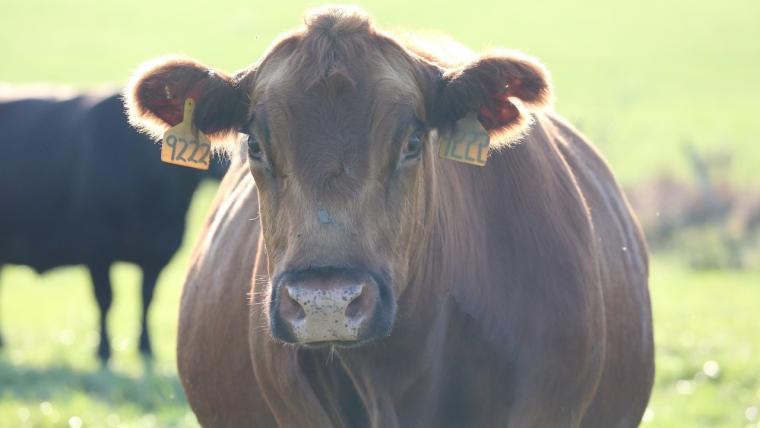
MU livestock specialists on new MDA exhibition rules
New exhibition rules issued by the Missouri Department of Agriculture late last year for showing cattle and swine at county fairs and exhibitions go into effect this year. University of Missouri Extension specialists say the changes encourage healthy animals.
MU Extension receives swine biosecurity grant
A $179,933 grant funds research on improving biosecurity measures in swine operations, focusing on entry systems to reduce disease transmission risks.
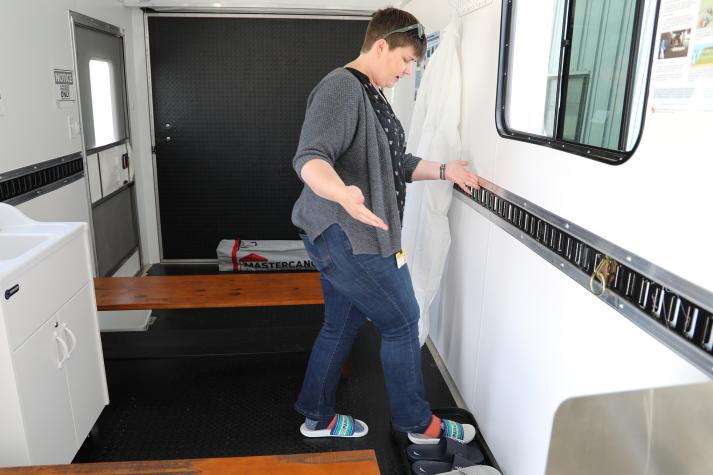
MU Extension biosecurity trailer demonstrates Danish entry system
A mobile biosecurity trailer demonstrates the Danish entry system, helping livestock producers reduce pathogen transmission with minimal space.

Program helps pork producers secure their biosecurity plans
Secure your pork operation with digital biosecurity tools that streamline regulatory access, speed disease response, and support farm continuity.
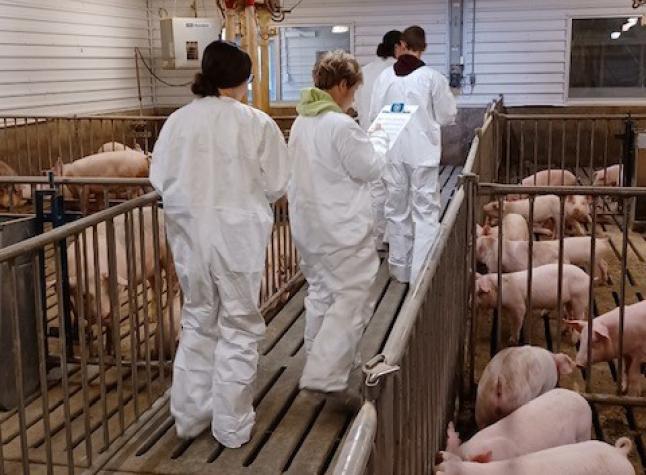
Beyond the show ring
FFA students explore swine facility management and industry opportunities beyond showing pigs.
Consider feeding pigs to higher weights when feed costs and hog prices go up
COLUMBIA, Mo. – When feed prices go up, swine producers usually see profits go down. That’s not the case in 2021.This gives producers an opportunity to look at feeding to heavier weights despite higher feed costs, says University of Missouri Extension swine nutritionist Marcia Shannon.Higher market weights result in dramatic net gains per pig under current grain and market conditions, she says. This comes despite higher feed…
Sweating like a pig?
COLUMBIA, Mo. – As temperatures inch upward, it’s not uncommon to hear rural folks say they are “sweating like a pig.”But pigs can’t sweat, says University of Missouri Extension swine nutritionist Marcia Shannon. Pigs would probably think they are in hog heaven if they could cool themselves by perspiring like other livestock and humans.
Feed pigs less fat, more fiber to slow growth
COLUMBIA, Mo. – As work at meat processing plants slows during COVID-19, hog producers may want to feed pigs cheaper diets and hold them longer.University of Missouri Extension swine nutritionist Marcia Shannon says producers can feed more fiber and less fat to slow growth.“This is a good time to move to feeding low-energy, high-fiber diets with an adjusted lysine-to-calorie ratio and remove any growth-promoting technologies,” Shannon…
African swine fever reduces China’s pork production
The U.S. Department of Agriculture (USDA) projects that by the end of 2019, China’s total swine inventory will be down by 18%. Indeed, the USDA estimated that the Chinese sow inventory was down 12% at the start of 2019.
Pigs can’t sweat to cool off; give them help on hot days
COLUMBIA, Mo. – Pigs can’t cool themselves through sweating and need special attention during heat waves, says University of Missouri Extension swine nutrition specialist Marcia Shannon.Pigs take priority over any other animals on the farm when temperatures rise, Shannon says. Pigs have few working sweat glands to remove body heat.Shannon offers these tips:Provide an adequate, constant supply of fresh drinking water cooled to room…
Different distillers grains may change feed rations
COLUMBIA, Mo.– Ethanol plants are getting more efficient at extracting fuel from corn, and that can affect the quality of distillers grains, a byproduct of ethanol production often used as an economical feed alternative for hogs and poultry.“They are doing some further extraction to get more of the corn oil out of distillers grains,” says Marcia Shannon, University of Missouri Extension swine specialist. “So we’re getting a little bit…
Hog farmers defy supply and demand; price outlook stays above expectation
COLUMBIA, Mo. – This year, hog farmers dodged lower prices when they expanded sow herds and grew the second-largest pork supply since 2008.Prices stayed above expectation, say University of Missouri Extension economists. Growing exports and consumers’ love for bacon helped demand for growing supply.However, the economists caution, “At this rate, supply can outstrip demand.”
Prepare for disease outbreaks in livestock operations with written plan
COLUMBIA, Mo. – A written plan to respond to disease outbreaks for your livestock operation is like insurance. You hope you never need it. You may never need it. But if there is an outbreak, the economic survival of your livestock operation might depend on having that plan.Planning and prevention are the best insurance against an outbreak, says University of Missouri Extension economist Ray Massey.
Pig disease on upswing in U.S.
COLUMBIA, Mo. – Pork producers need to know what to do if a vesicular disease strikes their operation.The Seneca Valley virus (SVV) disease is on the upswing in the United States, says Corinne Bromfield, University of Missouri Extension veterinarian.The Swine Health Information Center reported that diagnostics labs had seen more than 60 cases of SVV from January to June 2016. They reported only 20 cases in the previous 30 years.
